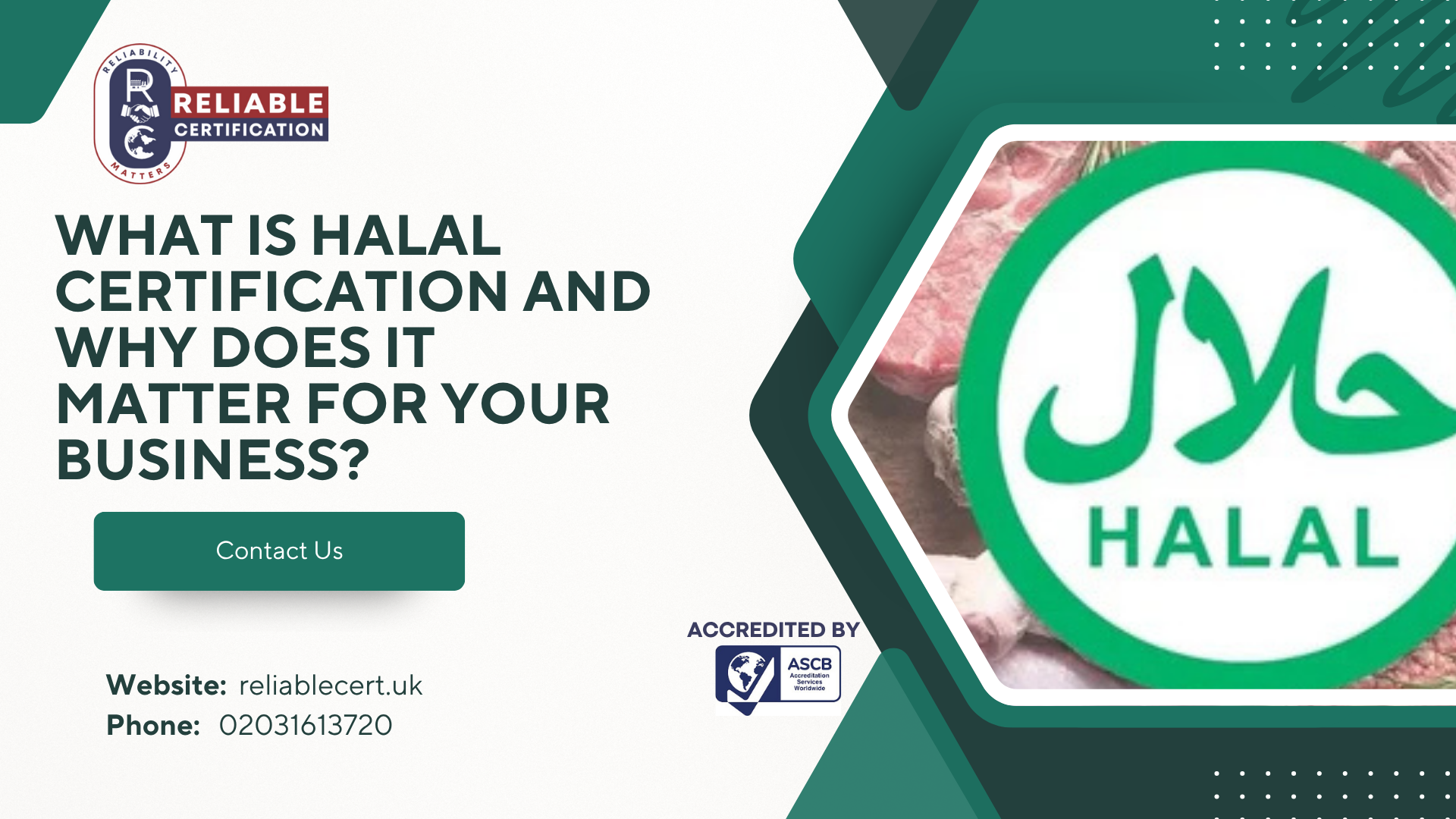Learn what HALAL certification means, how to get certified, and why it helps your business grow, build trust, and reach more Muslim customers worldwide.

If you run a food, cosmetic, or health-related business, you might have heard of HALAL certification. But what does it mean? And why is it important?
In this blog, we’ll break it down step-by-step in clear, easy English — so you can understand what HALAL-certified products are, how to get your business certified, and how this can help you reach new customers and markets.
The word HALAL means “allowed” or “permitted” in Arabic. It refers to anything that is okay for Muslims to eat, drink, or use based on Islamic law. On the other hand, anything that is not allowed is called Haram (forbidden).
This is not just about meat. HALAL rules also apply to:
Muslims want to be sure that the products they use do not contain anything that goes against their religion. That’s why having proper HALAL certification builds trust with Muslim consumers.
HALAL certification is an official document that confirms your product or service follows all Islamic dietary rules and guidelines. This certification is issued by a recognised HALAL authority after checking your ingredients, production methods, cleanliness, and handling.
Once certified, you can add the HALAL logo on your packaging. This helps customers easily identify that your product is safe and suitable for them.
It's also proof that your company respects religious values, cares about hygiene, and meets international quality standards.
Getting certified is not only about meeting religious needs. It also brings real business advantages.
There are over 1.9 billion Muslims in the world, and many of them only buy HALAL certified products. If your products are certified, more people will feel comfortable buying them.
Even in the UK, there are more than 3 million Muslims, and the demand for HALAL products is growing every year.
Customers trust HALAL-certified brands more because they know the products are:
That trust often turns into loyalty.
Many countries, especially in the Middle East, Asia, and Africa, require HALAL certification before they allow a product into their country. Without this certification, your export opportunities may be limited.
Having a HALAL certificate shows your business is professional and inclusive. It also helps you compete better, even with bigger brands.
A lot of people think HALAL certification is only for meat. But actually, many different types of businesses can get HALAL certified. These include:
If your product doesn’t contain alcohol, pork, or any Haram ingredients and your production process is clean it may qualify for HALAL certification.
In the UK, more businesses are now getting HALAL certified because they see the value of serving the Muslim community and exporting products internationally.
Some of the most well-known HALAL authorities in the UK include:
These bodies inspect your products and manufacturing process. If everything is HALAL-compliant, they issue a certificate valid for 12 months. Most certifications require yearly renewal.
Getting certified in the UK also helps you export to Muslim countries, as many governments accept certificates from UK-based authorities.
The HALAL certification process is simple if you follow the right steps:
Start by selecting a trusted certification body like HFA or HMC. Make sure they’re recognised in the regions where you want to sell your products.
You’ll need to fill in an application form and send details such as:
The HALAL authority will visit your factory or kitchen to inspect:
They make sure there is no cross-contamination with Haram substances like pork or alcohol.
After the inspection, they’ll review all documents and processes. If everything meets the HALAL standards, they will approve your application.
Once approved, your business receives a HALAL certificate, which allows you to legally use a HALAL logo on your product packaging and marketing.
Here are some of the main HALAL standards and requirements your business must follow:
These rules are designed to protect both the product quality and the religious values of Muslim consumers.
The cost of HALAL certification isn’t fixed it depends on several factors unique to your business. These include:
In the UK, the typical cost ranges from around £300 to £2,000 per year, but this can vary depending on your business size and the certification body’s requirements.
While this may seem like a considerable cost—especially for small or new businesses—it's important to see it as a strategic investment. HALAL certification can help:
Being HALAL certified isn’t just about religion. It also stands for cleanliness, good practices, and ethical values something many people, even non-Muslims, care about.
After you get certified, the work doesn’t stop. You need to keep following HALAL rules every day. HALAL authorities may do surprise visits or yearly inspections.
To stay compliant:
If you fail to follow these, your certificate may be cancelled, and this could damage your brand’s reputation.
If your business already follows ISO standards, that’s a big plus when applying for HALAL certification. Why? Because many of the requirements in the HALAL certification are similar to what ISO already covers.
Here’s how ISO can support your HALAL goals:
In short, if your business is ISO-certified, you’re already halfway there. It makes the HALAL certification process smoother, faster, and more reliable because you already follow global best practices in hygiene, quality, and safety.
Yes, if your business makes food, drinks, cosmetics, or health products, HALAL certification can help you grow and succeed.
It builds trust with millions of Muslim customers, helps you export to new countries, and shows your company is clean, ethical, and professional.
At Reliable Certification, we help you every step of the way from understanding the rules to preparing your documents and passing inspections.
Contact us now!
If you're ready to take your business to the next level, HALAL certification is a smart step forward
Typically replies within 30 minutes